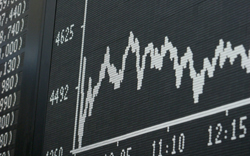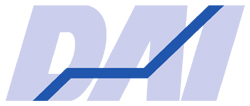Campus
Supervisory Board members earning more
 According to the Towers-Watson study on DAX 2010 supervisory board compensation, supervisory board members, like executives, can expect 21% higher pay on average. This reflects the recovery in Germany after the crisis, says the consultancy. A supervisory board chair of a DAX30 company will on average have earned some €262,200 in 2010, following €226,000 in 2009. Towers Watson expects rising supervisory board emoluments next year too.
According to the Towers-Watson study on DAX 2010 supervisory board compensation, supervisory board members, like executives, can expect 21% higher pay on average. This reflects the recovery in Germany after the crisis, says the consultancy. A supervisory board chair of a DAX30 company will on average have earned some €262,200 in 2010, following €226,000 in 2009. Towers Watson expects rising supervisory board emoluments next year too.
|
Company |
Supervisory board chair |
2010 |
2009 |
Change |
|
Volkswagen |
Ferdinand K. Piëch |
577,000 |
390,500 |
48% |
|
Siemens |
Gerhard Cromme |
501,400 |
384,000 |
31% |
|
BASF |
Eggert Voscherau |
478,000 |
- |
- |
|
E.ON |
Ulrich Hartmann |
433,900 |
453,000 |
-4% |
|
Henkel |
Simone Bagel-Trah |
400,000 |
- |
- |
|
RWE |
Manfred Schneider |
354,900 |
- |
- |
|
Linde |
Manfred Schneider |
338,200 |
316,900 |
7% |
|
SAP |
Hasso Plattner |
330,000 |
220,000 |
50% |
|
BMW |
Joachim Milberg |
301,700 |
175,000 |
72% |
|
Daimler |
Manfred Bischoff |
291,300 |
293,600 |
-1% |
|
Fresenius SE |
Gerd Krick |
272,800 |
242,000 |
13% |
|
Bayer |
Manfred Schneider |
270,000 |
270,000 |
0% |
|
Beiersdorf |
Reinhard Pöllath |
260,500 |
227,500 |
15% |
|
Munich Re |
Hans-Jürgen Schinzler |
258,000 |
268,000 |
-4% |
|
Deutsche Bank |
Clemens Börsig |
252,000 |
281,700 |
-11% |
|
ThyssenKrupp |
Gerhard Cromme |
245,400 |
263,700 |
-7% |
|
Allianz |
Gerhard Rupprecht |
229,000 |
224,500 |
2% |
|
MAN |
Ferdinand K. Piëch |
228,400 |
118,000 |
94% |
|
Telekom |
Ulrich Lehner |
226,900 |
73,400 |
209% |
|
Commerzbank |
Klaus-Peter Müller |
215,000 |
239,000 |
-10% |
|
Metro |
Jürgen Kluge |
193,700 |
194,900 |
-1% |
|
Lufthansa |
Jürgen Weber |
188,500 |
75,000 |
151% |
|
Deutsche Börse |
Manfred Gentz |
172,000 |
205,300 |
-16% |
|
Deutsche Post |
Wulf von Schimmelmann |
165,500 |
82,100 |
102% |
|
Adidas |
Igor Landau |
160,000 |
138,871 |
15% |
|
Fresenius Medical Care |
Gerd Krick |
143,500 |
108,000 |
33% |
|
HeidelbergCement |
Fritz-Jürgen Heckmann |
139,000 |
- |
- |
|
K+S |
Ralf Bethke |
122,500 |
125,500 |
-2% |
|
Merck |
Rolf Krebs |
61,300 |
- |
- |
|
Infineon |
Klaus Wucherer |
56,800 |
50,000 |
14% |
|
Source: Towers Watson, figures for 2010 estimated, for 2009 taken from business reports. Where figures are missing, the amount is not disclosed in the business report, or not for the whole year.
|
||||
Will 2011 be the year for takeovers?
According to a survey by consultancy Boston Consulting Group (BCG) and Asset Managers UBS, there will be several takeovers in the new year. The chief share strategist of Société Générale also predicts that 2011 will be a year for mergers and takeovers, share buybacks and dividend increases. In the course of the crisis firms had refrained from acquisitions and higher distributions, thus forming reserves. The cash reserves in firms in the Stoxx 600 alone have risen to $691 billion US, says data service provider Bloomberg. That means in any case 16% more than at the start of the crisis in 2007. Firms are now looking for ways of making use of this available cash. The BCG survey of 180 CEOs of European listed companies shows that only 6% of bosses prefer share buybacks or dividend increases. A third of them are instead expecting acquisitions of other European companies, and half of them even predict two or more takeovers in their own branch. 16% of them are themselves planning to take over a firm with a turnover of more than €500 million. And the probability of a takeover rises in the case of groups with a stock-exchange value of more than €5 billion by 100%. Reducing debt is not an alternative for 80% of the managers. Since high cash reserves make a company attractive for a hostile takeover, the slogan for 2011 is going to be: eat or be eaten.
BASF ahead on IR
 The investor-relations division of chemicals giant BASF is doing good work. Even internationally the group has collected prizes for good IR. In November the British IR Society gave the Ludwigshafen group the prize for best use of the homepage to communicate company investment decisions and also for most effective use of online media in IR work. All round, the BASF homepage was named best presented in the “international” category, and the business report (print and online) the most efficient report. As well as the four British distinctions, BASF took several other awards in 2010 for its IR work.
The investor-relations division of chemicals giant BASF is doing good work. Even internationally the group has collected prizes for good IR. In November the British IR Society gave the Ludwigshafen group the prize for best use of the homepage to communicate company investment decisions and also for most effective use of online media in IR work. All round, the BASF homepage was named best presented in the “international” category, and the business report (print and online) the most efficient report. As well as the four British distinctions, BASF took several other awards in 2010 for its IR work.
Companies sought for CSR study
The chair of industrial and organizational sociology of Frankfurt University is looking, in a study, at how important the issue of sustainability and corporative social responsibility (CSR) is regarded as by globally operating German firms. The academics are finding out the differing expectations that companies, customers, investors and the public have of a firm’s CSR. In doing so, employees of DAX and MDAX companies responsible for CSR are questioned on the topic in 20-minute interviews. The institute is looking for more participants. Contact: This email address is being protected from spambots. You need JavaScript enabled to view it.
K+S top for Say-on-Pay
For shareholders and investors, it is of great interest that the remuneration of their company’s executives be transparent. The organization of shareholder associations in Europe, EuroShareholders, accordingly awards a prize each year for the most shareholder-friendly remuneration systems. The jury, made up of experts from shareholder associations from all over Europe, gave prizes to the best “Say-on-Pay-Systems” in 2010 too, and in Germany honoured K+S, BMW and Beiersdorf for their remuneration practice.
IR managers skeptical about Social Web
 Listed companies are still hanging back when it comes to addressing investors through social media. This is the finding of the study “Innovative Instruments for Financial Communication” presented by the Deutsches Aktieninstitut and NetFederation. “For instance, to date only one in five IR managers uses the Twitter channel, or is planning to do so within the next six months”, stated Rüdiger von Rosen, managing director of the Deutsches Aktieninstitut. For other social media like Facebook or an IR blog, the skepticism is still more marked. Companies are not yet convinced of the utility of these instruments, and additionally communication through social media is fairly expensive and time-consuming, and the necessary staff and financial resources for it are lacking, fear the firms. The study “Innovative Instrumente der Finanzkommunikation” can be viewed at www.dai.de.
Listed companies are still hanging back when it comes to addressing investors through social media. This is the finding of the study “Innovative Instruments for Financial Communication” presented by the Deutsches Aktieninstitut and NetFederation. “For instance, to date only one in five IR managers uses the Twitter channel, or is planning to do so within the next six months”, stated Rüdiger von Rosen, managing director of the Deutsches Aktieninstitut. For other social media like Facebook or an IR blog, the skepticism is still more marked. Companies are not yet convinced of the utility of these instruments, and additionally communication through social media is fairly expensive and time-consuming, and the necessary staff and financial resources for it are lacking, fear the firms. The study “Innovative Instrumente der Finanzkommunikation” can be viewed at www.dai.de.















